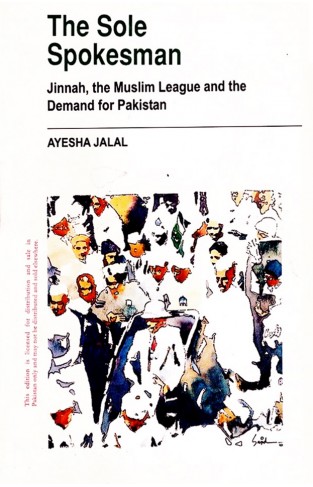In 1940 the AllIndia Muslim League first voiced its demand for independent Muslim states in the northwest and the northeast of India. Commonly known as the demand for ‘Pakistan’, it led seven years later to the partition of India in one of the most cataclysmic and violent events in recent history. In this book Dr. Ayesha Jalal examines what happened in those intervening years, identifying the factors which led to the creation of Pakistan and providing new insights into the nature of the British transfer of power in India. In particular, Dr. Ayesha Jalal focuses on the role of Mohammad Ali Jinnah, the leader of the AllIndia Muslim League, and the main proponent of the ‘twonation’ theory on which the demand for ‘Pakistan’ was based. Jinnah claimed to be the sole spokesman of all Indian Muslims, not only in provinces where they were in a majority. Yet given the political geography of the subcontinent it was clear that there would always be as many muslims outside a specifically Muslim state as inside it. This book investigates how Jinnah proposed to resolve the contradiction between a demand for a separate Muslim state and the need for a strategy which could safeguard the interests of all Indian Muslims. It does so by identifying Jinnah’s real political aims, the reasons why he was reluctant to bring them into open, and his success or failure in achieving them.












